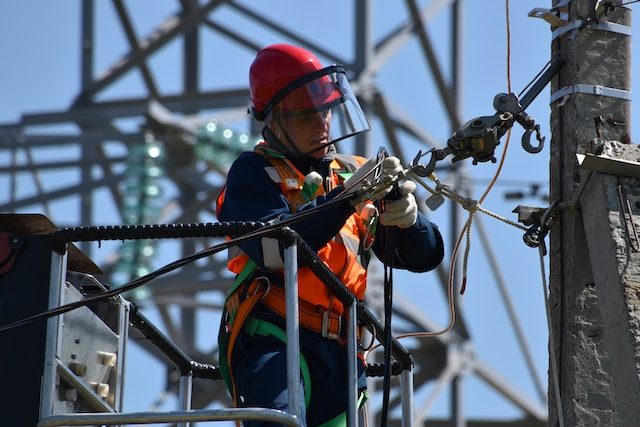Your Guide to Understanding a Completion Certificate
A completion certificate is something that you will need to obtain from the local authority in the UK following completion of the building phase of a construction project. This is an important document that you will need to keep hold of since it will prove that the structure has been erected according to the local planning authority’s guidelines and within the national building regulations.
Although many property developers are aware that they need planning consents to be issued by local authorities, not all of them know that a completion certificate is advisable to obtain after works have been carried out. Some will simply leave it to their main contractor or the relevant subcontractor. What is it and why do you need one?
Subauftrag.com – your reliable arrangement service for subcontractors
Finding skilled workers for your projects doesn’t have to be a lot of effort. With our almost 20 years of experience and references from projects worldwide, we are the experts in finding the best teams for you. Learn here more about our service:
When Is a Completion Certificate Required?
You might be in need of a completion certificate for your project if, in the future, someone were to lodge an official objection to it. Perhaps they might say that the project did not meet compliance guidelines? Maybe they might claim a change of property usage is unwarranted? There again, it could be they say you never had the proper permissions for such works to take place in the first place.
In situations like these, it is your completion certificate that will demonstrate that you had the initial permission to develop your property in the way that it has been. Moreover, it will show that such works were completed to the correct standard. This means that they did not exceed the remit of the relevant permissions and that they passed building control inspections before being signed off by the right person.

In the UK, you will need a completion certificate to cover works that include the building of new structures, such as offices or houses, but also other types of work. These can include renovation works, especially where the outside structure is altered or updated or where the works have taken place in a conservation zone. You will also need a completion certificate for most kinds of demolition works to prove a site is safe to rebuild on or sell.
Who Carries Out Completion Certification?
In nearly all cases in England, it is the local authority’s building control officer who will issue a completion certificate. There is some variation of the rules in Northern Ireland, Wales and Scotland – where the Building (Scotland) Act of 2003 applies – but, in the main, it is something that happens as a part of the usual building control procedure.
That said, it is the responsibility of the so-called relevant person to apply for the completion certificate. In other words, one is not issued automatically by local authorities simply because your construction works have been inspected by a local officer and found to be in good order. Although the ‘relevant person’ usually means the developer or the landowner, it could also be a subcontractor who does this on their behalf as a part of their project management services.
In some cases, it could be tenants who have had works carried out with the permission of the landlord. In such situations, it would be usual for them to apply for a completion certificate. If so, they will usually need to present it to the landowner who will require it if the property were to ever be sold in the future as it is highly likely that a conveyancing solicitor will need to see it to approve any sale.
Why Is a Completion Certificate a Good Idea?
As mentioned, selling property becomes much harder when a completion certificate cannot be produced. It means that the searches that are done by a lawyer prior to a property sale will not be fully complete and this can put some buyers off. They won’t know whether the building is as it should be if they buy it and may struggle to prove it is structurally sound without the necessary certification.

However, lack of a completion certificate does not mean that a building might need to be knocked down or that an extension will have to be altered. Therefore, not having a completion certificate is more of an administrative hurdle to get over than a disaster when a sale is desirable. In short, this means that properties that do not have one – or where one has gone missing – tend to sell for a lower asking price.
So, for the price you need to pay to obtain a completion certificate, they should be seen as investments. With the right certification, your property will be able to be put on the market for the best possible price. Even if not having one does not lead to a drop in the sales value of a property, it can hold sales up and this, in turn, creates more cost for buyers and sellers alike.
Borrowing and Completion Certificates
It is not just conveyancers who want to produce completion certificates from their local authority searches. Many mortgage lenders will only provide loans for properties where the full documentation is available. In other words, if you want to sell and your would-be buyers require a mortgage for the purchase they want to make, then having a completion certificate is highly desirable.
However, it is not just about selling your property where this aspect of a completion certificate comes into play. If you ever want to remortgage your own property or to raise a secured personal loan that uses your building as collateral, then having the right paperwork to prove the structure is sound and the property is worth what it is valued at can be very helpful.
Equally, some buildings insurance companies will turn down any claims that are made on structures that have been altered or built anew which do not have the relevant completion certificate. They might argue that their policy is invalidated because it is not proven that the building was put up or extended correctly, for example. To put it another way, a completion certificate, whether you apply for it directly or obtain it through your contactor, can be a very valuable document.
In our blog we explain all the required documents and important legal framework for working with subcontractors. Learn here more about the topic: